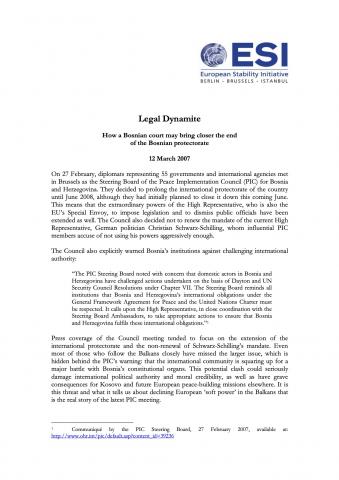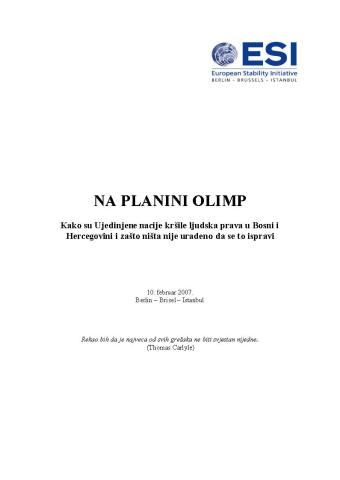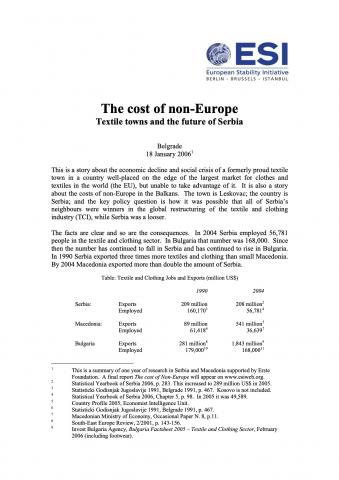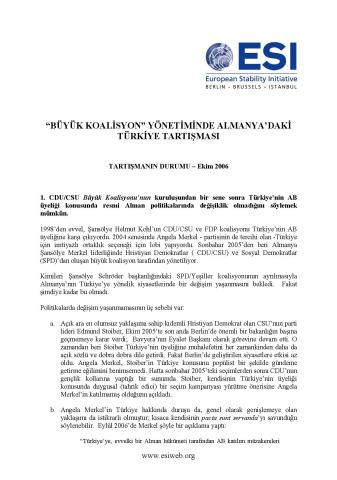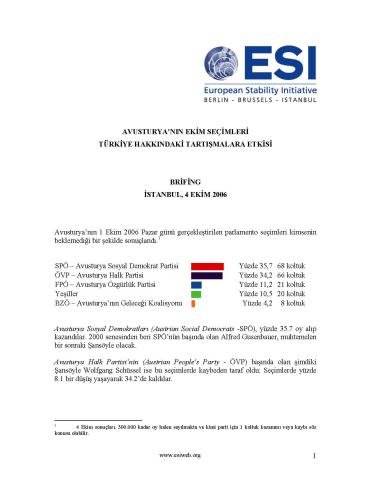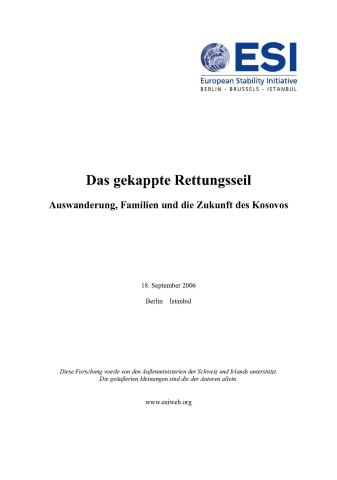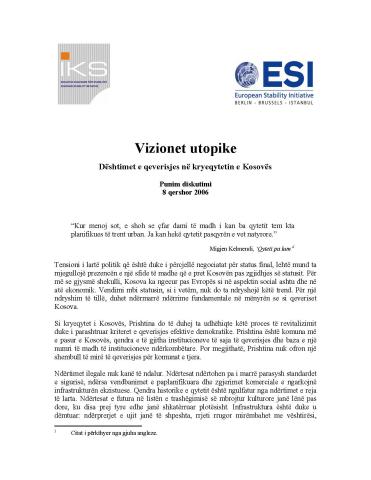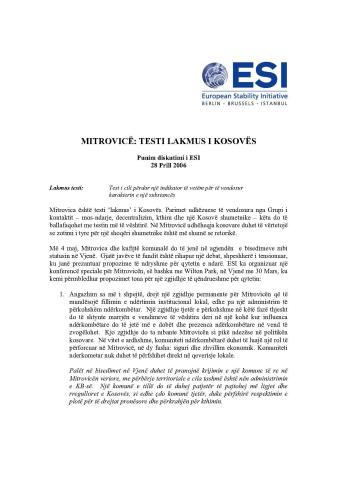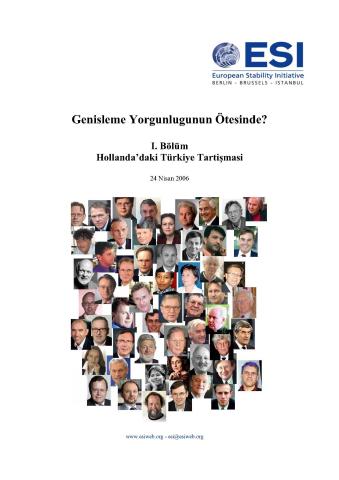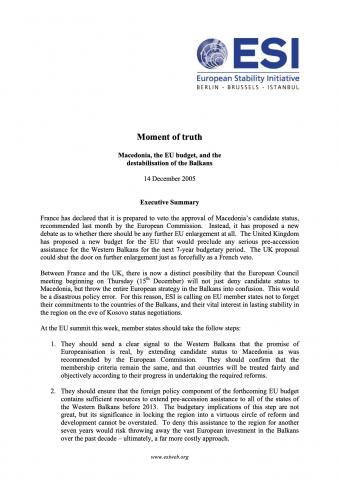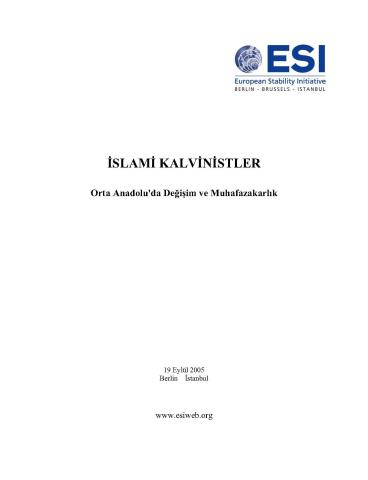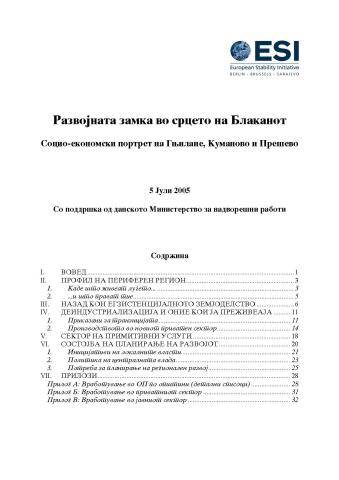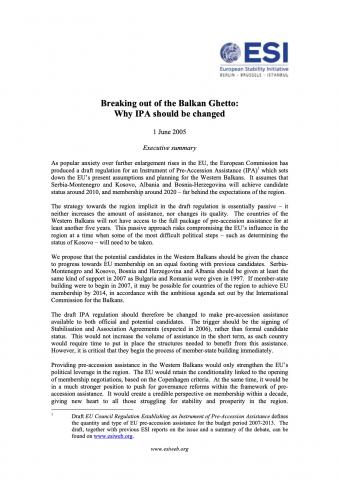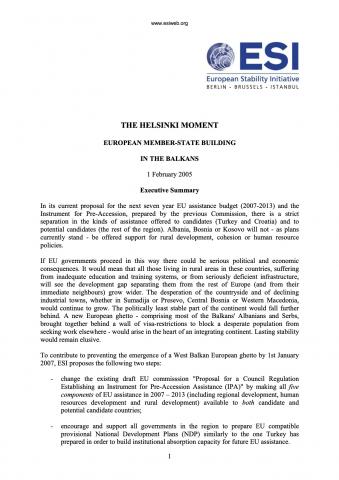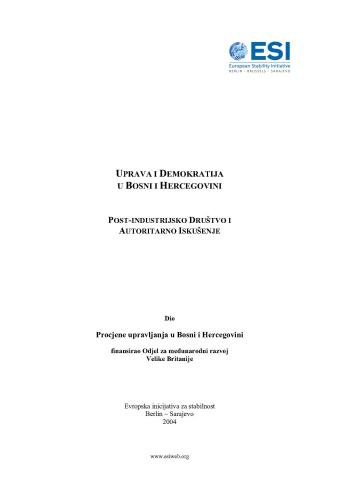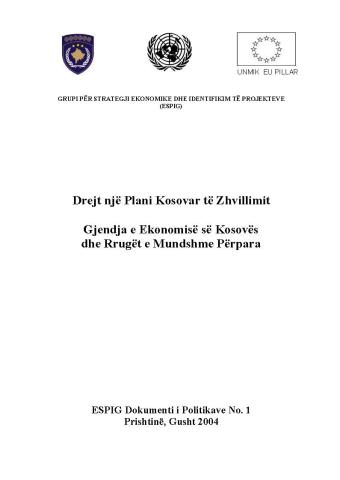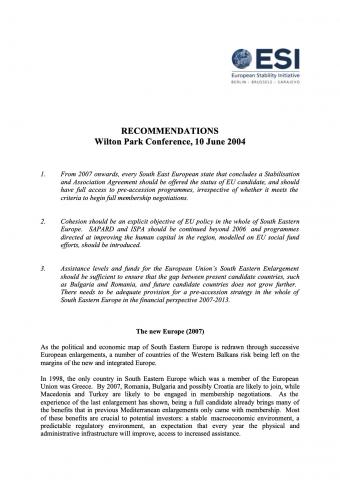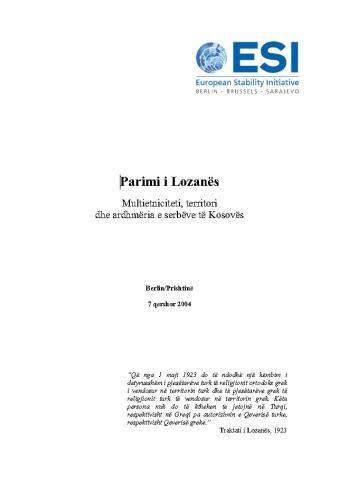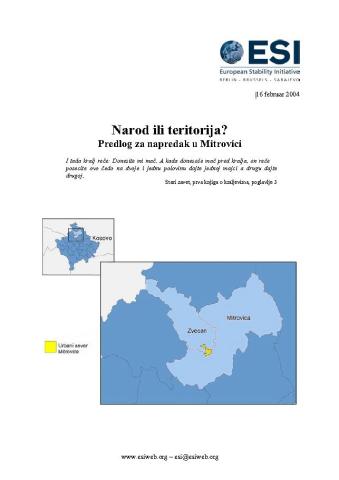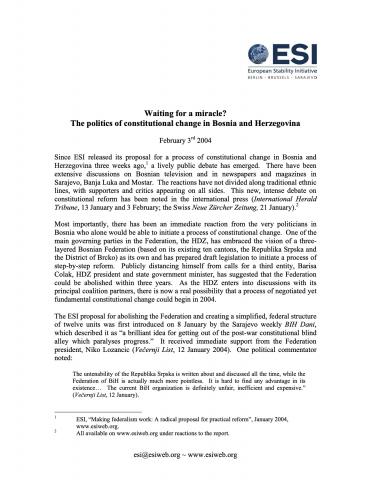Publications
154 PublicationsDiscussion paper: Legal Dynamite - How a Bosnian court may bring closer the end of the Bosnian protectorate
On 27 February, 55 government and agency diplomats met in Brussels as the Steering Board of the Peace Implementation Council (PIC) for Bosnia and Herzegovina. They extended the international protectorate of the country to June 2008, also prolonging the powers of the High Representative/EU's Special Envoy. They chose not to renew the mandate of the current High Representative, Christian Schwarz-Schilling, criticized by PIC members for not being aggressive enough.
On Mount Olympus - How the UN violated human rights in Bosnia and Herzegovina, and why nothing has been done to correct it
UNMIBH ran the International Police Task Force (IPTF) in Bosnia from 1996 to 2002. Its goal was to vet Bosnian police officers and remove inappropriate personnel. The UN assessed 18,000 officers, finding 793 unfit for police duties. These individuals were permanently banned from serving as police without being given a chance to respond or knowing the reasons. Among the 793 cases, at least 150 remained unresolved, leading to instances of injustice.
Discussion Paper: The cost of non-Europe - Textile towns and the future of Serbia
This is a story about the economic decline and social crisis of a formerly proud textile town in a country well-placed on the edge of the largest market for clothes and textiles in the world (the EU), but unable to take advantage of it. It is also a story about the costs of non-Europe in the Balkans. The town is Leskovac; the country is Serbia; and the key policy question is how it was possible that all of Serbia's neighbours were winners in the global restructuring of the textile and clothing industry (TCI), while Serbia was a looser.
Discussion paper: The German Turkey debate under the grand coalition
Before 1998, Chancellor Helmut Kohl's CDU/CSU and FDP coalition opposed Turkey's EU aspirations. In 2004, Angela Merkel continued to support a privileged partnership for Turkey. Since 2005, Merkel has led a CDU/CSU and SPD Grand Coalition. Despite expectations of a policy shift towards Turkey with the departure of the SPD/Green coalition, no changes have occurred.
Discussion paper: Austria's October elections Implications for the Turkey debate
The Austrian Social Democrats (SPÖ) won with 35.7%. Alfred Gusenbauer, the SPÖ leader, is set to be the next Chancellor. The Austrian People's Party (ÖVP), current Chancellor Wolfgang Schüssel's party, lost 8.1 points, reaching 34.2%. The right-wing Austrian Freedom Party (FPÖ) came third, while the Green Party got 10.3%. A coalition of SPÖ and ÖVP, led by Gusenbauer, is anticipated. This government shift will impact Austria's policy towards Turkey.
Cutting the lifeline - Migration, Families and the Future of Kosovo
Post-war Kosovo's economy, once powered by diaspora remittances, is experiencing changes as these remittances decline. This report highlights the inconsistency in EU's large investment in Kosovo's stability whilst limiting migration. It also notes that although migration and remittances provided relief for Kosovo, they haven't spurred development.
Discussion paper: Utopian Visions - Governance failures in Kosovo's capital
Amidst the high political drama surrounding final status talks, it is easy to lose sight of the vast challenge facing Kosovo once status is resolved. In social and economic terms, Kosovo has been falling behind Europe for half a century. A decision on status alone will not break this trend. It will require major changes in the way Kosovo is governed.
Mitrovica: Kosovo's Litmus Test - ESI Discussion Paper
The key to Kosovo's future lies with a small piece of territory less than three square kilometres in size. All of the most pressing issues in the final status talks come to a head in Mitrovica. North Mitrovica is the last part of Kosovo still under direct international administration. Decentralisation is yet to occur, return and property rights remain a source of tension, security structures have been found sorely wanting, and institutions on the ground
Beyond Enlargement Fatigue? The Dutch debate on Turkish accession
The Netherlands is central to understanding the European debate on the future of enlargement. This study suggests that the language of Dutch politicians, however guarded, is not the language of enlargement fatigue.
Moment of truth: Macedonia, the EU budget and the destabilisation of the Balkans
Between France and the UK, there is now a distinct possibility that the European Council meeting beginning on Thursday (15th December) will not just deny candidate status to Macedonia, but throw the entire European strategy in the Balkans into confusion. This would be a disastrous policy error. For this reason, ESI is calling on EU member states not to forget their commitments to the countries of the Balkans, and their vital interest in lasting stability in the region on the eve of Kosovo status negotiations.
Islamic Calvinists - Change and Conservatism in Central Anatolia
This report explores these processes of social and economic change in one Central Anatolian province – Kayseri, home to one million people. Our goal is to take the debate on Turkey and its two identities beyond the clichés that have so long informed it, by introducing this Central Anatolian revolution to a European audience. The report is written for all those who wish to consider Turkey and its European aspirations in the light of current realities.
The development trap at the heart of the Balkans - A socio-economic portrait of Gjilan, Kumanovo and Presevo
The problems facing this area are severe, but they are not qualitatively different from those which have been successfully tackled in new EU members and accession countries. The governments of the region, together with their international partners, would be well advised to begin applying EU development planning methodology as soon as possible, before social pressures once again build up to a dangerous level.
Breaking out of the Balkan Ghetto: Why IPA should be changed
As popular anxiety over further enlargement rises in the EU, the European Commission has produced a draft regulation for an Instrument of Pre-Accession Assistance (IPA) which sets down the EU's present assumptions and planning for the Western Balkans. It assumes that Serbia-Montenegro and Kosovo, Albania and Bosnia-Herzegovina will achieve candidate status around 2010, and membership around 2020
The Helsinki Moment - European Member State Building in the Balkans
In its current proposal for the next seven year EU assistance budget (2007-2013) and the Instrument for Pre-Accession, prepared by the previous Commission, there is a strict separation in the kinds of assistance offered to candidates (Turkey and Croatia) and to potential candidates (the rest of the region). Albania, Bosnia or Kosovo will not - as plans currently stand - be offered support for rural development, cohesion or human resource policies.
Post-Industrial Society And The Authoritarian Temptation
Bosnia and Herzegovina faces intense social and economic disruption. Its former industrial society has collapsed without a new private-sector driven economy emerging. The crisis results in low employment, escalating poverty, and economic insecurity. It severely limits government capacity to offer basic services and jeopardizes the state's financial sustainability.
Towards a Kosovo Development Plan - The state of the Kosovo economy and possible ways forward
The key priority for this and future Kosovo governments is to identify ways in which Kosovo can catch up with the rest of Europe. The overriding goal of Kosovo's economic policy must be to bring about a substantial process of convergence towards European living standards within the next generation.
Recommendations From Wilton Park Conference, 10 June 2004
As the political and economic map of South Eastern Europe is redrawn through successive European enlargements, a number of countries of the Western Balkans risk being left on the margins of the new and integrated Europe.
The Lausanne Principle: Multiethnicity, Territory and the Future of Kosovo's Serbs
Five years into the international administration of Kosovo, two violent days in March 2004 have sorely tested the international commitment to a multiethnic Kosovo. Directed against Kosovo's minorities and against the international mission itself, the violence has left many wondering whether UNMIK has the capacity to achieve its objectives in the face of open resistance.
People Or Territory? A Proposal For Mitrovica
At a conference in Wilton Park on 1 February, ESI presented its analysis of Mitrovica's economic and social predicament to Kosovo Albanian and Kosovo Serb leaders, together with a proposal for a way forward in 2004. To balance the fears and concerns on both sides, ESI's Wilton Park proposal consists of a package of measures, to be implemented in parallel during the course of 2004. There are four elements to the package.
Waiting for a miracle? The politics of constitutional change in Bosnia and Herzegovina
Since ESI released its proposal for a process of constitutional change in Bosnia and Herzegovina three weeks ago, a lively public debate has emerged. There have been extensive discussions on Bosnian television and in newspapers and magazines in Sarajevo, Banja Luka and Mostar. The reactions have not divided along traditional ethnic lines, with supporters and critics appearing on all sides.

